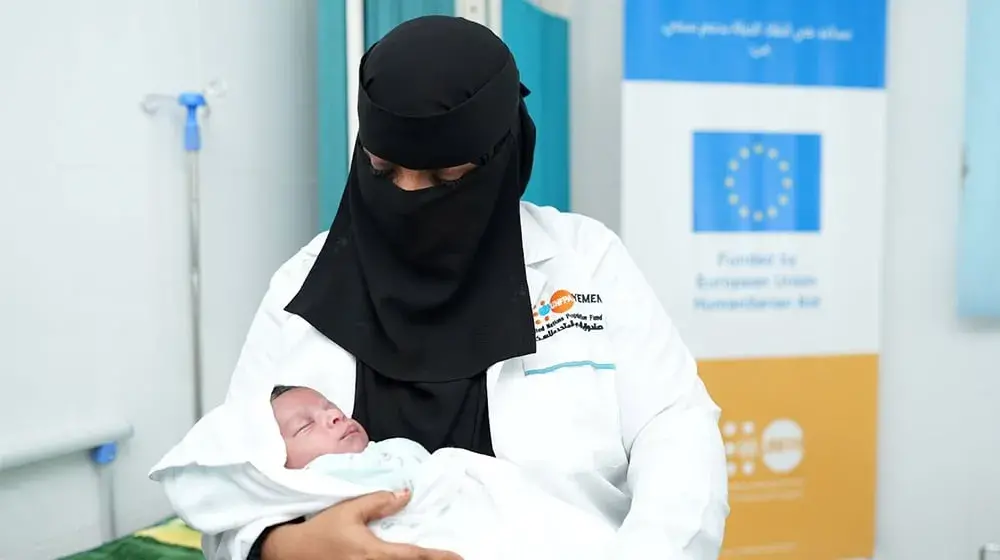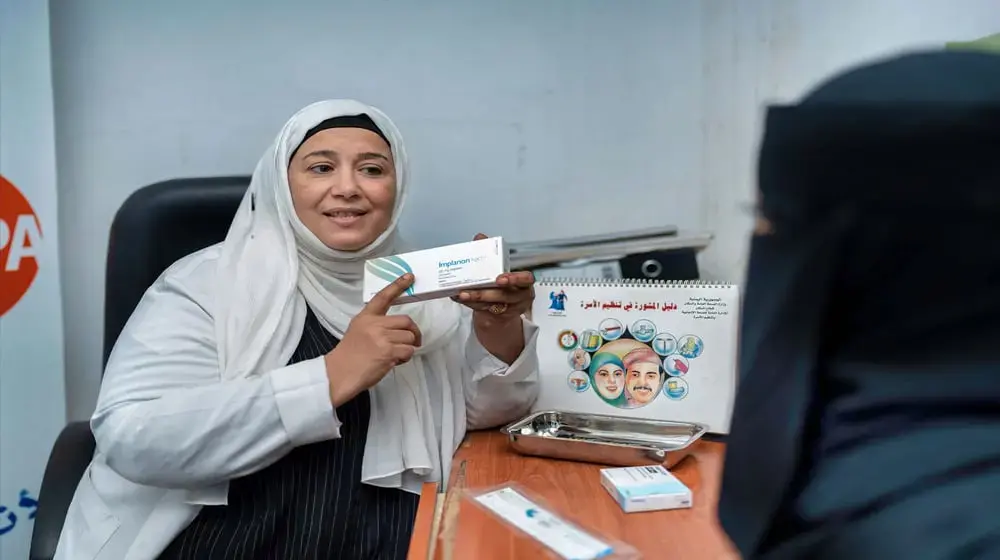Married at 15 years, Aziza and her husband tried getting pregnant for 10 years with no luck.
“When I became pregnant with my first child, it was a very happy time for me and my family; but I could not visit a hospital during my pregnancy as the hospital in our village, Al Hameliy, didn’t have the necessary facilities. When it was time for me to deliver, women in the village helped with my delivery, I suffered enormously and in the end lost my baby. A year later I was pregnant again, and suffered the same fate.
“I had given up on having children but my family kept pushing me. I was soon pregnant for the third time. The war had made it very difficult for us to afford medical care at a hospital in the city so I had no choice but to deliver at home. I couldn’t not believe when I lost my baby for the third time.
"After two years, my husband and I decided to try again. While pregnant ,I heard that Al Mokha Hospital has set up a maternity unit to handle cases like mine, free of charge. We decided to take the journey to Al Mokha Hospital. "
“I was received immediately at the hospital by the midwives. The medical team decided that I needed a cesarean section. The next thing I remember is waking up in the operating room and asking the midwife if my baby was alive. To my relief, the midwife replied that my child is in healthy and in an incubator. I forgot all my pain, I felt so happy, I cried, and hugged the midwife," she tells UNFPA with joy. --- Aziza, 28 years
With funding from the United Arab Emirates, UNFPA helped to expand the maternity unit at Al Mokha Hospital, located on the West Coast, close to the front lines in Yemen's five year long conflict, to ensure that women like Aziza who face complications during pregnancy and childbirth are able to access emergency obstetric care services they require free of charge and without long hours of travel. Prior to this women in Al Mokha had to travel almost five hours to reach a health facility providing such services.
Since opening in January 2020, more than 1,000 women benefited from reproductive health services and 20 Caesarean sections were conducted safely.



